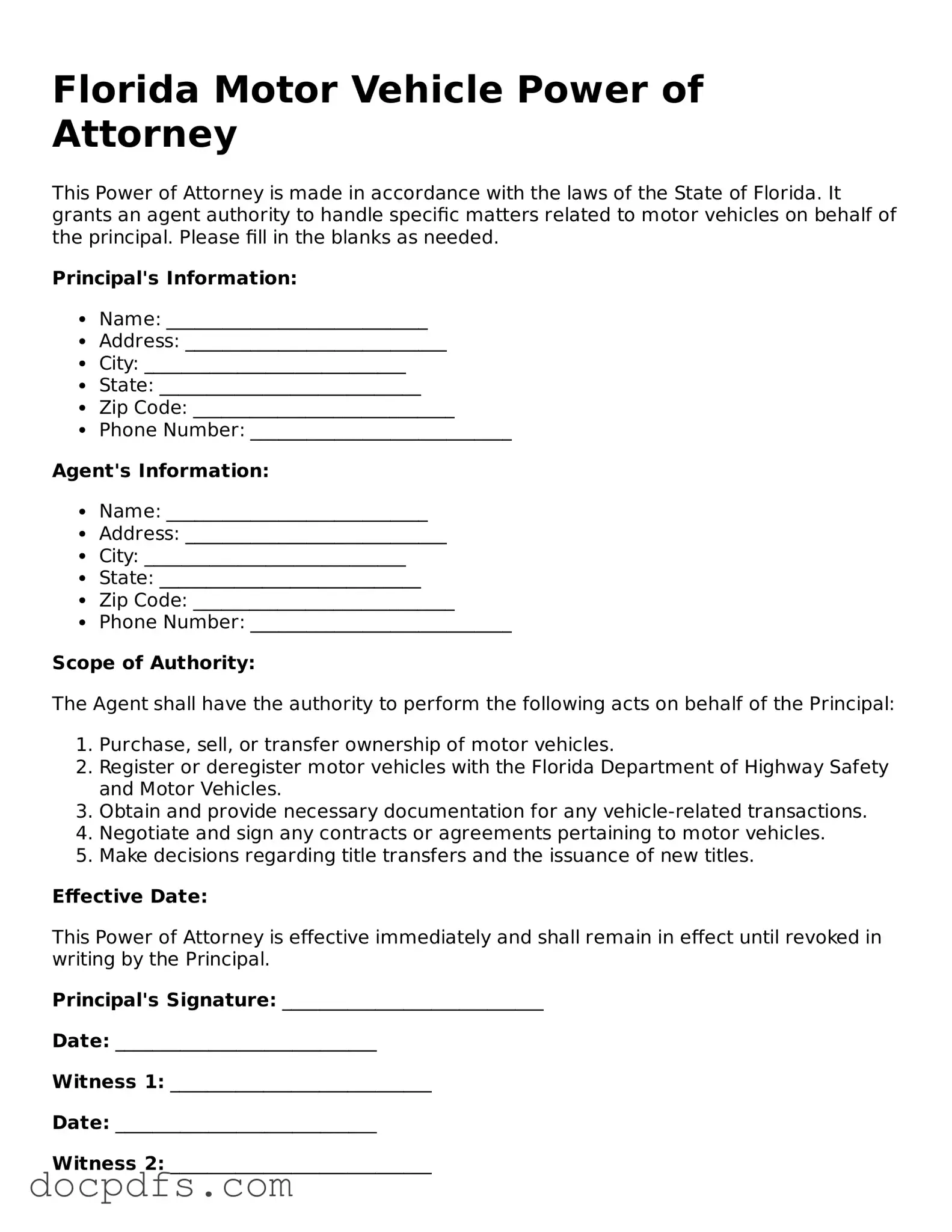Free Florida Motor Vehicle Power of Attorney Form
The Florida Motor Vehicle Power of Attorney form is a legal document that allows one person to grant another the authority to handle specific motor vehicle-related tasks on their behalf. This can include signing documents, transferring titles, or dealing with the Department of Highway Safety and Motor Vehicles. Understanding how this form works is essential for anyone needing to delegate these responsibilities effectively.
Open Motor Vehicle Power of Attorney Editor Now

Free Florida Motor Vehicle Power of Attorney Form
Open Motor Vehicle Power of Attorney Editor Now

Open Motor Vehicle Power of Attorney Editor Now
or
⇓ Motor Vehicle Power of Attorney
Finish this form the fast way
Complete Motor Vehicle Power of Attorney online with a smooth editing experience.